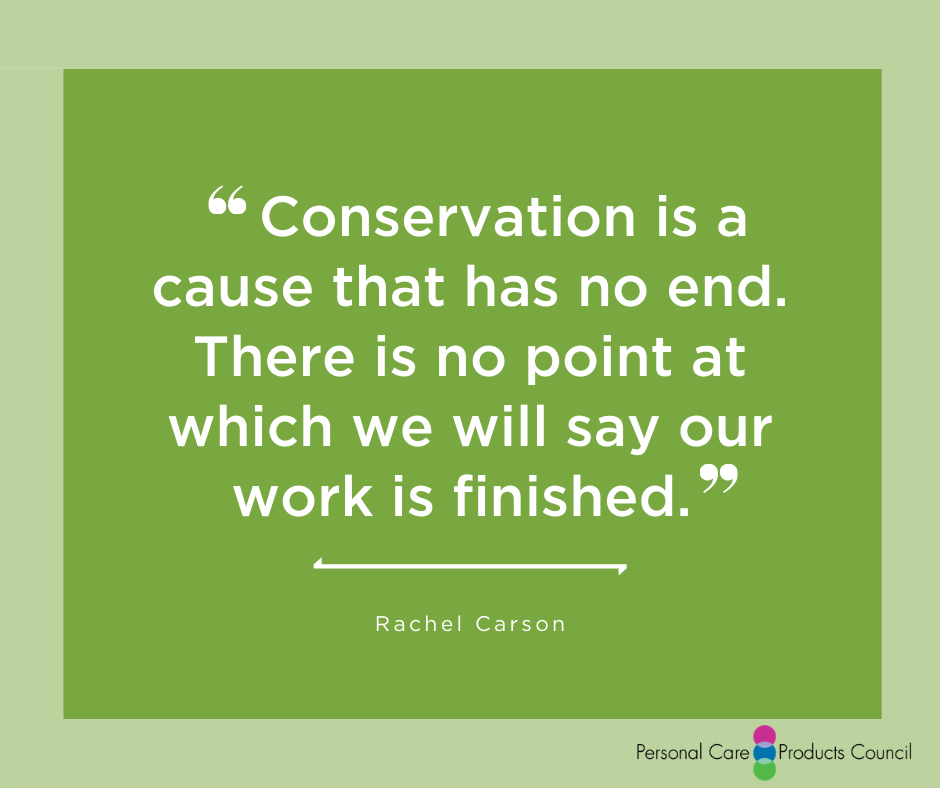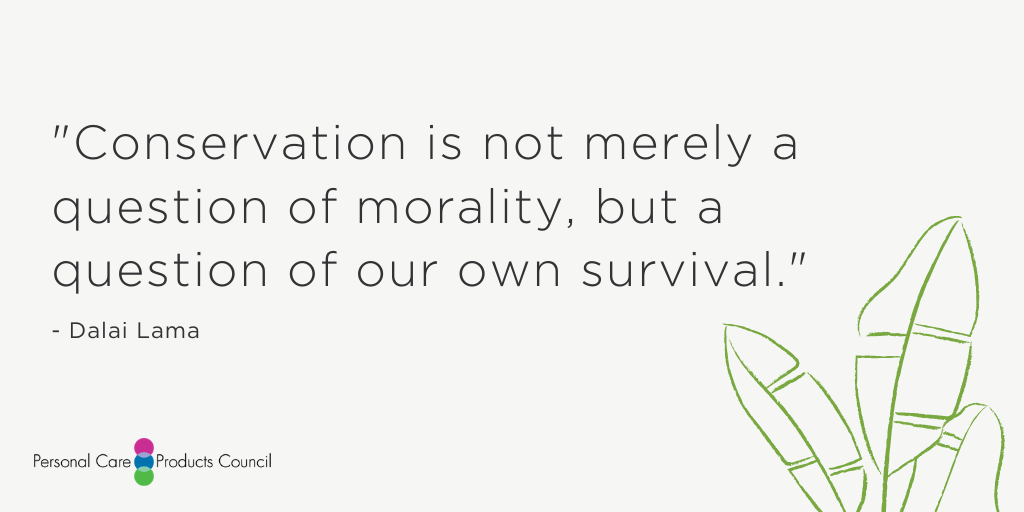Preserving the Abundance of Nature
Lisa Powers
EVP, Public Affairs & Communications, Personal Care Products Council
On July 28, we celebrate World Nature Conservation Day to raise awareness, and encourage advocacy and action for the health and well-being of our environment. It is an opportunity to acknowledge the urgent need for the preservation and protection of our natural resources and to ensure their abundance for future generations.
Experts agree that human activities on Earth are causing widespread resource depletion and degradation. Humanity’s ecological footprint (a measure of consumption and impact on the planet) is estimated to be two to three times the Earth’s capacity to sustainably provide resources to meet demand. Fueled by population growth, the shortfall between the supply of resources and the demand for them is being met through the depletion (or degradation) of natural capital – things like clean air, fresh water, soil, forests, wetlands, marine ecosystems and biodiversity. Rising demand for resources to meet the needs of more than 7.6 billion people has transformed land use and generated unprecedented levels of pollution and ecosystem loss. Scientists estimate Earth’s overshoot (when humanity’s needs exceed the planet’s capacity) began in the 1970s, and has accelerated ever since.

While we may not experience the decline in resources, biodiversity loss and species extinction on an individual level, nature is declining globally at rates unprecedented in human history.1 Scientists believe biodiversity loss affects ecosystems as much as climate change, pollution and other major forms of environmental stress; numerous studies have demonstrated that more biologically diverse ecosystems are healthier and more productive. Driven by continued disruptions to the environment, scientists predict that more than 1 million species are on track for extinction in the coming decades.
Leading nonprofit conservation organizations like the World Wildlife Fund (WWF), Conservation International and The Nature Conservancy, however, know we can be smarter about how we use our oceans, freshwater and land, and how we produce energy, food and other resources. They believe we have the knowledge and capability to explore new ways to feed the growing population, meet our energy demands and manage our water supply.
The beauty and personal care industry recognizes that we are at a cross roads – actions taken now are essential to protecting the natural world we rely on today and to ensure a sustainable tomorrow. Most of the leading companies in the sector have established goals to reduce their operating and product footprints, to better manage their resource use and reduce waste. Some have programs in place to protect against deforestation and biodiversity loss but, admittedly, it will require more than the efforts of just one sector to halt and reverse what we are experiencing.
In order to ensure a healthy future for our planet and all humankind, we need public policies that protect our fragile ecosystems, biodiversity and species and technology to enable us to distribute these finite resources smarter and more efficiently. Most importantly, we need to rethink how we value nature and its role in our existence, and conserve on a far greater scale.
How You Can Help
- Talk to others about conservation and its importance for our planet
- Support a conservation organization with a donation or membership
- Conserve in your own life: Reduce, Reuse, Recycle
- Support those on the front lines of conservation work by reading a book or watching a documentary that celebrates nature and sustainability

1 https://www.un.org/sustainabledevelopment/blog/2019/05/nature-decline-unprecedented-report/
